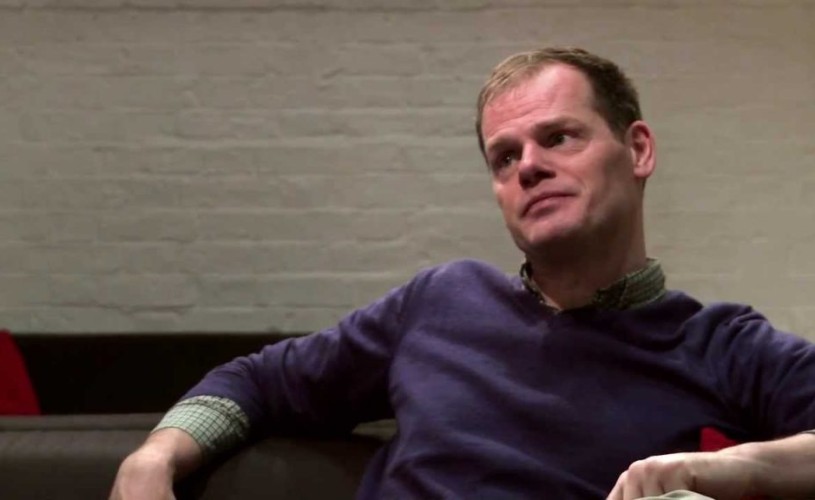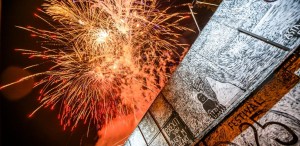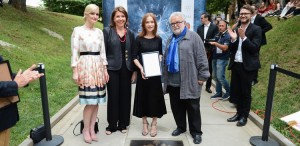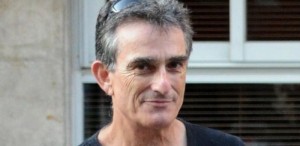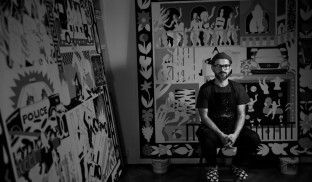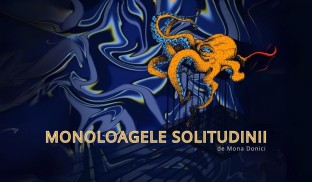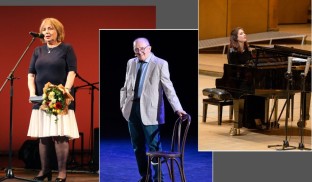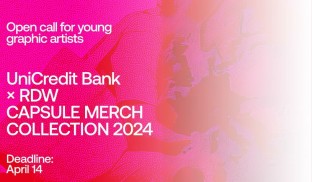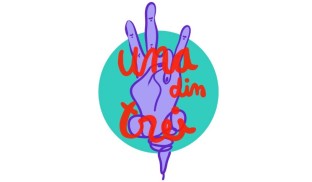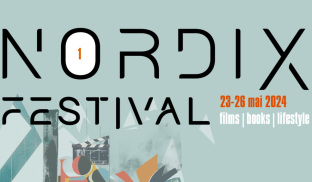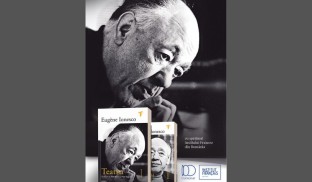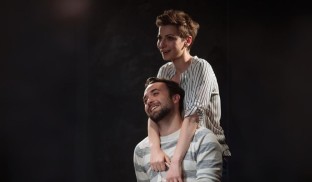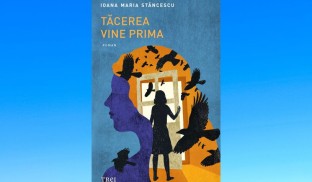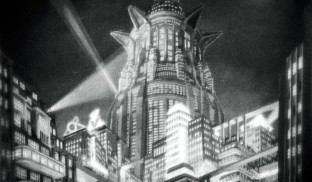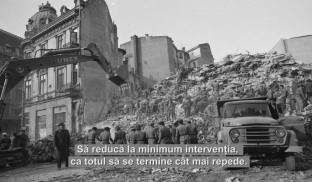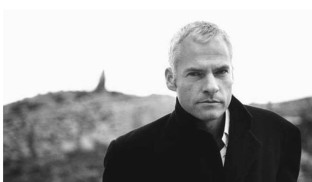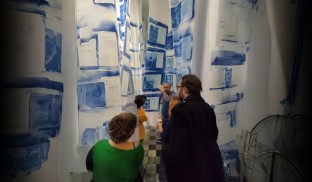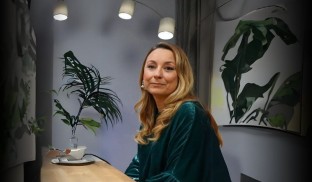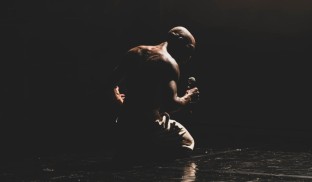Our increasingly multicultural world: is it “a fruit salad, or a time bomb? Or is it simpler than that?”, as one character says in the show you presented at FITS 2018, “Border Tales”? How do we even begin to tackle the challenges of interactions, including stereotypes and prejudices, between different people and traditions?
Un articol de Cristina Enescu Aky|17 iunie 2018
Our increasingly multicultural world: is it “a fruit salad, or a time bomb? Or is it simpler than that?”, as one character says in the show you presented at FITS 2018, “Border Tales”? How do we even begin to tackle the challenges of interactions, including stereotypes and prejudices, between different people and traditions?
There is no easy solution to this complex topic. In fact, our show “Border Tales” does not offer a solution. There is that moment in the show where a character is standing on a chair, then steps down and says to the other ones “Do you want to take it? The message that comes across is that, maybe, by stepping down from the chair we are sitting on, if we all allow ourselves to step down from this pedestal where we have placed ourselves, because we think we are better than others – that would help a lot. Knowing that no one is superior, no one has The Solution. Allowing more space for dialogue and exchange, without preconceived ideas, is what this show is about.
Could there be „a simpler way” to connect to the other?
Well it is always simpler than we think. “Looking somebody in the eyes, saying good morning or inviting them for a cup of tea”, as they say in the show – in a way, for me that is a solution, going back to a sense of human approach, to the proximity between people, without letting the politics interfere. Unfortunately, there is a lot of political and economic interest in how people relate to each other, this is what makes relating to other people less simple. If we try to forget about this interest, it certainly helps start the way.
For example I saw some Roma people passing by today in Sibiu. You look at them and think about them being gypsies. Why do I react in such a preconceived way? Border Tales works with this kind of stereotypical thinking, which we all are full of even if we think we don’t have prejudices. Even when not expressing ourselves, we all have a way of putting people into mental boxes, often seeing them only through what we know about them. Therefore, people don’t count as people, but as groups, ideas. It’s not an easy subject to tackle, that’s why the show ends with a person sitting alone on the stage, next to the balloon from the party he threw, all the guests (of different ethnic origins) has left… I wanted to say that ultimately we need to sort things out inside within ourselves, before sorting out our relationship with the others.
You say it’s not simple, yet the feelings that Border Tales bring about are mainly of luminosity and leggerezza (lightness). You spoke previously about this leggerezza being the source of the humour that your projects show. How can people (in real life as well as in art) keep this feeling of lightness, in such a tense, often challenging reality?
I think the issue is not whether a problem exists, but whether you make something into a problem. Just like in yoga, in theater too can tackle difficult topics through a smile, this can help you see even very complex, overwhelming issues in a different light. A tense approach to difficult matters doesn’t help. Stand-up comedy, which Brits are very good at, is often very intense, provocative. The context is a light one (comedy), but this doesn’t mean there it’s not committed or politically relevant. La leggerezza, being lighthearted, can help connect people, in theater and life.
 One thing that makes Border Tales so easy to connect with is that sense of “real flesh and blood” on stage, real names, stories, personal experiences. Weren’t you afraid to make the show like this?
One thing that makes Border Tales so easy to connect with is that sense of “real flesh and blood” on stage, real names, stories, personal experiences. Weren’t you afraid to make the show like this?
I’m very attracted to people, their background, their stories. The stories we put on stage are not dissimilar to the ones of people in the audience. When you come to the theater you are not a blank canvas, you come with your own feelings, thoughts – and if we manage to connect the stage and life, then you can enter a dialogue. This is wonderful, to use theater, dance, words, music, imagery, movement to tell stories and allow people to relate to them. This is fundamental for me. It’s important at times to escape reality, however a piece like this one allows you to see your own issues in a bigger projection. And maybe it can shift you to a place where you start questioning and somehow touching challenging topics through other people. You see it’s not just you facing certain issues.
A quintessence of the complexity of Border Tales is perhaps Antar Kharana, the one creating the complex musical background of the show. A symbol of how various musical traditions, vocal cultural identities and body performances can transcend differences between people, while at the same time celebrating people’s specificities. How do you feel about celebrating differences and transcending them?
Just like you’re saying: by celebrating differences, we transcend them. Antar makes all those music coming from different cultures and spaces. Music identities are so specific to the various cultures, yet there are so many points of contact, inclusion and influences between them. People travel, they always have, and bring their traditions with them. The same happens with dance, food, with any expression of culture. I think that, by celebrating this diversity, we actually embrace them and say “in fact, we are not that dissimilar”.
This show was born 5 years ago. How is it perceived nowadays in post-Brexit UK, and by audiences elsewhere?
In the beginning, in the UK it had a really good reception from the audience. Some of the critics found it sort of unbalanced, for different reasons, or quite “easy”. We brought it back last year, after Brexit, and the reception was completely different, it became more relevant now than when it was first made. I kind of take a little bit of credit to have sensed that something was coming. What happened in the last 2 years, not just in the UK but around the world, with Trump and the other things like “our country first” (whichever country that is), has brought about what I and other people as well thought was an approaching time bomb.
So far, al audiences have responded really well, here in Romania too. Although the piece is based on the experience of people arriving to the UK, you can transfer those stories to any other country, the issues are similar.
Your company is called Luca Silvestrini’s Protein. In the body, among others, proteins are an important source of tissue building and cohesion, and a source of energy. Can performing arts, music, theater be sort of a protein for our contemporary society, fueling good energy and help with building healthy human and social connections?
Absolutely yes, that is very true! When we chose this name it was almost a joke, we wanted to call the company “Protean” (from the Greek god Proteus), which means “transformable, versatile”. But many people don’t know this word, and it sounded more like “protein”, so we went for that. It reminds one of energy and bonding. Indeed, through theater, dance, meeting the audiences (we also do a lot of participation projects), you help empower people. By doing that, in fact you help create a better, more united and cohesive society. When you bring people together, you’re actually saying “we’re all similar, everybody counts, without discrimination”. Anyone can dance or relate to dance. Just like the proteins in the body, this types of art helps create connections and energizes people and the society.
The trailer of „Border Tales”, a show by Luca Silvestrini’s Protein dance theater company, Great Britain.

